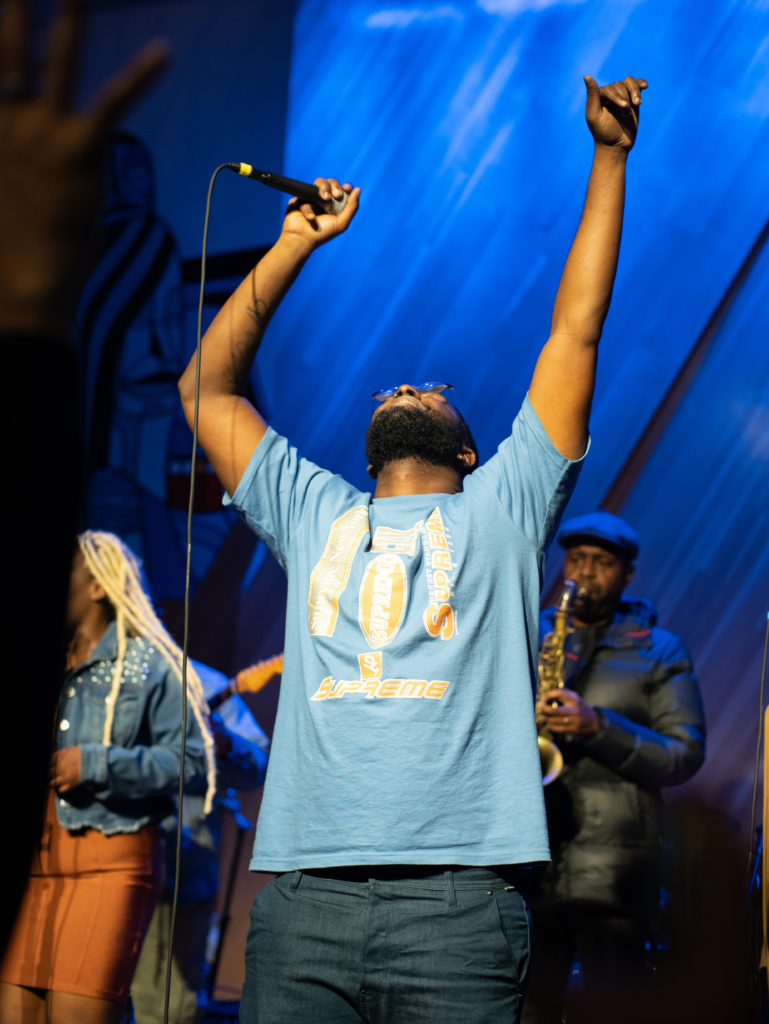

By Zeno Pederson
Youth Voice & Leadership is at the core of KOO’s mission to empower Black Youth. Too often, our young people are referred to as future leaders. And, of course, they are the leaders of tomorrow. However, as educators focused on Liberatory Learning practices: How can we offer the resources and skills young people need to be leaders today ?
At KOO, trust and respect come first. This means we readily offer our students the same respect and trust we ask them to offer us. To build trust, respect and get the permission of students’ to guide them in their academic journey; it’s cultivating their voice that provides the pathways and solutions to academic and social/emotional empowerment.
Voice, verbal or otherwise, is how we advocate for ourselves. It’s how we clearly state our feelings, and practice vulnerability. However, Black students, in particular, are made to feel that their voices don’t truly matter. And often, many young people are taught silent obedience before they ever find their voice.
This is not new or rare. We have all experienced this sort of disempowerment in our youth – being shut down, being unconsidered. When we feel our voice is shut down and quelled; we can tend to feel unsafe, disconnected, withdrawn, and not share our authentic selves verbally. This kills relationship building.
This is precisely why Youth Voice and Leadership are drivers for KOO. In schools it is natural for students to listen to adults. At KOO we also want to make it natural for adults to listen to students. This means showing genuine interest in students’ passions, talents and skills, while also taking heed of their frustration or disinterest. We teach and model to our young people that listening is not only a skill, it is a sign of mutual respect that often leads to greater understanding.
Working with district partners we always start with Listening Campaigns to hear what all stakeholders are holding, especially the students. How do students learn? What do they need to learn? What makes learning fun? Students have many of the answers we seek.
 The Youth are the future leaders, so how do we hone their skills with current leadership opportunities? Youth develop and acquire leadership skills participating in our Street Team, TFI Oakland program, Media Academy and other workforce development opportunities. We all learn by doing, failing, evaluating, learning and refining. That is the same for leadership. Our young people must have opportunities to practice and learn leadership skills to eventually become skilled leaders.
The Youth are the future leaders, so how do we hone their skills with current leadership opportunities? Youth develop and acquire leadership skills participating in our Street Team, TFI Oakland program, Media Academy and other workforce development opportunities. We all learn by doing, failing, evaluating, learning and refining. That is the same for leadership. Our young people must have opportunities to practice and learn leadership skills to eventually become skilled leaders.
Youth voice and leadership also feeds narrative change. We highlight youth voices in innovative projects that provide opportunities to cultivate and share a multitude of authentic stories that provide alternative enlightenment than the typical narrow mass media programming. Through consistent development the youth produce music albums, films, podcasts and events that provide other youth opportunities to lift their voice and lead work that empowers others.
There are many stories to tell. Everyone has at least one. We must be intentional in our approach to hear the youth fully, have dialog, and put them in positions to develop their leadership skills. We have learned that this can be especially helpful with spirited students.
In order to effect meaningful change in the lives of youth, we must understand the importance of youth input.
We challenge you to ask yourself: What is the function of discussing policy pertaining to Youth, which fails to include the input of young people? If you are not at the table, you will be on the menu.
